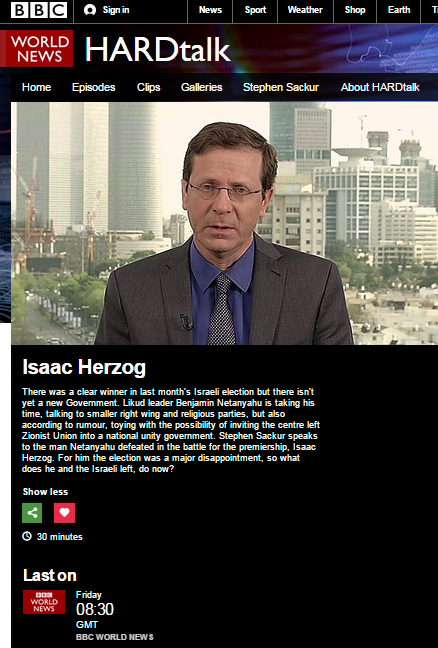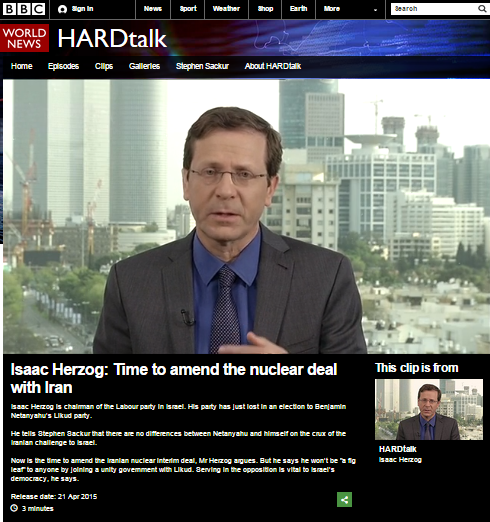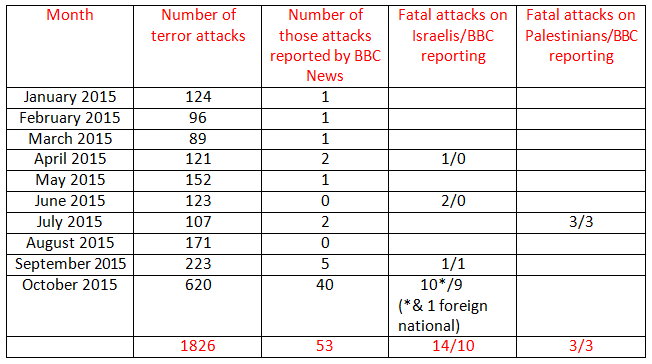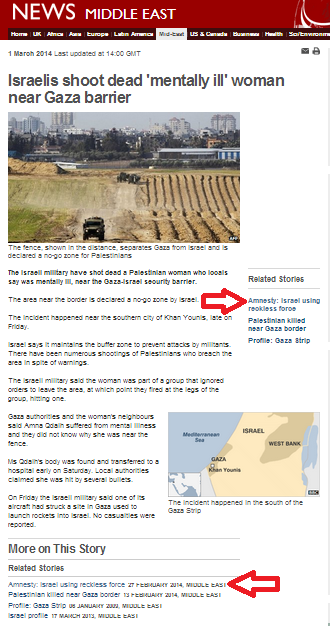The April 21st/ 22nd edition of ‘Hardtalk’ featured an interview with the leader of the Israeli Labour party, Yitzhak (Isaac) Herzog. Readers in the UK can find the programme on BBC iPlayer here and a podcast of the programme is available here.
As is not infrequently the case, viewers and listeners heard presenter Stephen Sackur promoting his own ideas about Israel in the form of ‘questions’ and even some belated election campaign advice to Herzog.
10:42: “I tell you what you could have done – and you talk about fear – what maybe you could have done to the Israeli people is say that if we do not negotiate a two state solution with the Palestinians, then there’s only one other realistic alternative: that is we have a bi-national state – a unitary state – which includes all of the Palestinians in the occupied territories as well as Israel proper and the result of that will be in the long run, we Jewish Israelis will be in a minority. So then we either accept that in a democracy or we run an apartheid state. But you never outlined the choice in those terms.”
04:39: “Are you telling me today that you believe Binyamin Netanyahu is in essence a racist?”
06:08: “What does it say about today’s Israel that the argument that you’ve just outlined – that Netanyahu used close to polling day – was so successful? What does that tell us about Israel today?”
21:00: “Before we end, let’s just address a bigger picture thought. Not so long ago the president of Israel, who is no peacenik – he’s a former…he is a Likudnik – Reuven Rivlin, he said Israel right now is a sick society. He was talking about the signs of a new racism and discrimination amongst some elements in Israeli Jewish society. And not so long ago the great writer Amos Oz – he said there is a real danger of Israel becoming an isolated ghetto. When you hear the words of Oz and Rivlin – the worries about where Israel is today – do you share them?”
One particular section of the interview was also promoted by the BBC on social media under the title “Isaac Herzog: Time to amend the nuclear deal with Iran” and with the following synopsis.
“Isaac Herzog is chairman of the Labour party in Israel. His party has just lost in an election to Benjamin Netanyahu’s Likud party.
He tells Stephen Sackur that there are no differences between Netanyahu and himself on the crux of the Iranian challenge to Israel.
Now is the time to amend the Iranian nuclear interim deal, Mr Herzog argues.”
In that clip Herzog says:
“On the crux of the challenge of the Iranian nuclear programme there is no difference [between Labour and Likud]. And I made it clear throughout the elections that there is no difference here: there is no coalition and opposition here. This is a matter of huge impact on the world peace, on Europe, on Britain too by the way and of course on the Middle East and the moderate forces in the Middle East and the security of Israel.”
Whilst Herzog’s stance on the P5+1’s framework agreement with Iran will not come as a revelation to those with a realistic understanding of the Israeli political scene, it does shine a spotlight on the framing chosen by the BBC in its presentation of the issue in recent weeks. That choice of framing has led to a failure to clarify to BBC audiences that concerns regarding the Iranian nuclear programme straddle the Israeli political spectrum and are not – as BBC audiences have been led to believe – the exclusive concern of the Israeli prime minister.
“Mr Netanyahu has repeatedly warned a deal with Iran could threaten Israel’s security.” (21/1/15 – link to source)
“Administration officials have been hitting back at Mr Netanyahu’s aggressive opposition to the nuclear deal they’re negotiating with Iran…” (26/2/15)
“That issue – Iran and the Bomb – is one of the defining themes of Mr Netanyahu’s career …” (26/2/15)
“To his supporters Mr Netanyahu is something of a visionary on the topic, who has devoted much of his career to warning that the revolutionary regime in Tehran is hell-bent on acquiring nuclear weapons.” (2/3/15)
“Mr Netanyahu says the deal would be inadequate to prevent Tehran from acquiring a nuclear bomb.” (2/3/15) [links to sources of all of the above]
“Israeli Prime Minister Benjamin Netanyahu has warned that the framework deal poses a grave danger to the region.” (30/3/15 – link to source)
“When Israeli Prime Minister Benjamin Netanyahu, one of the most vociferous sceptics, recently addressed the US Congress. he invoked the history of World War One [sic], and actions of wartime leaders which tragically paved the way to the Holocaust.” (30/3/15 – link to source)
“There was anger though from Israel, whose leader Benjamin Netanyahu has been a vocal critic of Iran and told President Obama the deal threatened the survival of Israel.” (3/4/15 – link to source)
“Mr Obama said he recognised the concerns raised by Israeli Prime Minister Benjamin Netanyahu, a fierce critic of the deal…” (7/4/15 – link to source)
As readers are well aware, the BBC has consistently failed to provide its audiences with the background information necessary for them to understand why leaders from across the Israeli political scene (among many others) are concerned by the P5+1’s framework agreement with Iran. Herzog went on to say:
“And we presented – I presented – a full-fledged plan on how to deal with the agreement that’s supposed to be agreed upon by the end of June. Right now is the time to amend whatever needs to be amended and correct and upgrade and improve a lot of issues which are open and disturbing.”
Stephen Sackur, however, was too focused on the niche topic of coalition building to take the opportunity presented by Herzog’s words to contribute to the BBC’s public purpose remit by clarifying to audiences worldwide exactly why two Israeli leaders with such different views on so many other issues see the same pitfalls in the framework agreement.




